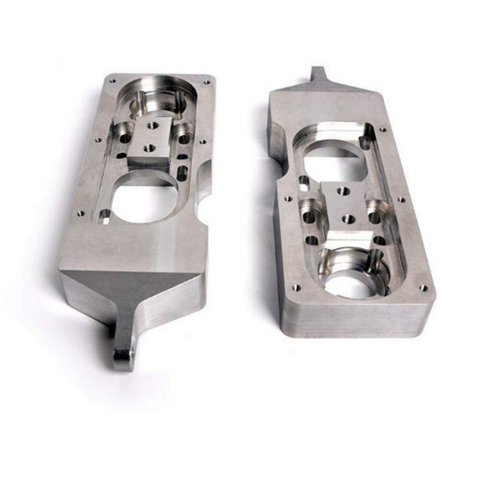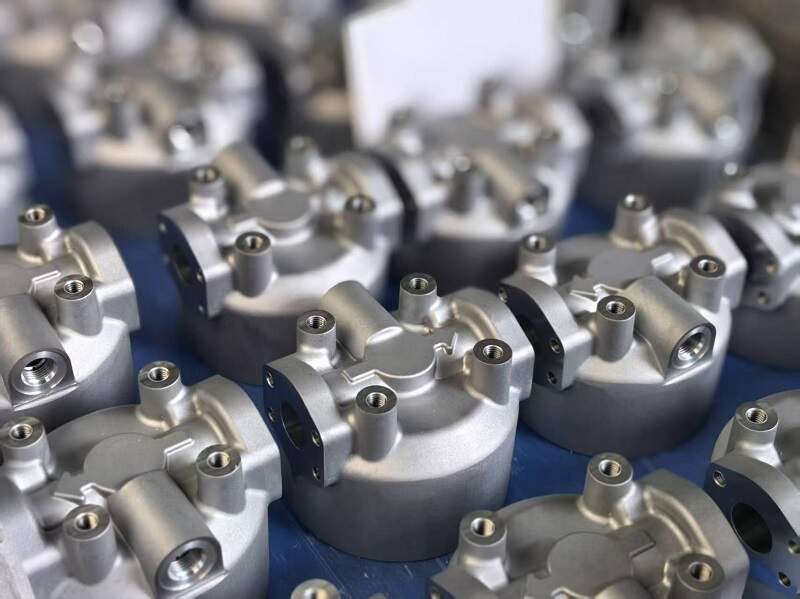The leading reasons why aluminum casting remains in high demand
A Comprehensive Guide to Choosing the Right Factory Providers for Your Job Needs
Selecting the appropriate foundry services is essential for the success of any kind of task. Each spreading method-- sand casting, financial investment spreading, and pass away spreading-- has distinct advantages. Recognizing these alternatives helps in making informed decisions. Product selection, production capabilities, and quality assurance are essential factors to take into consideration. In addition, reviewing prices can influence long-lasting viability. aluminum casting. What variables should assist this decision-making process?
Comprehending the Various Sorts Of Shop Solutions
While the world of shop services might seem facility in the beginning glance, recognizing the numerous types can significantly improve the manufacturing procedure. Shops typically concentrate on casting steels, and the major kinds include sand spreading, financial investment spreading, pass away spreading, and centrifugal casting.
Sand spreading involves creating molds from sand and is suitable for huge parts or low-volume manufacturing. Investment spreading, on the other hand, uses high accuracy for complex designs, making it ideal for aerospace or medical applications. Pass away casting, defined by requiring liquified metal right into mold and mildews under high pressure, is reliable for mass production of smaller sized components.
Centrifugal casting utilizes rotational pressure to distribute molten steel, producing solid, round parts. Each service type has distinct benefits and is chosen based on details project needs. Recognizing these differences permits manufacturers to pick the most appropriate shop solution, eventually enhancing effectiveness and product quality.
Key Elements to Consider in Product Selection
Picking the appropriate material for factory services is an essential action that affects the general success of a project. Key elements in product option include mechanical homes, thermal resistance, and deterioration resistance - Aluminum Foundry. Comprehending the intended application and its requirements is essential; materials should endure functional anxieties while preserving honesty in time
An additional crucial factor to consider is the product's compatibility with the chosen manufacturing process, as some materials are better matched for certain strategies. Cost-effectiveness also plays a significant duty, as budget restraints can limit alternatives.

Last but not least, schedule and preparation of materials can influence project timelines, making it essential for job supervisors to assess these aspects extensively. By thoroughly evaluating these components, one can assure an extra reliable and successful foundry service experience.
Evaluating Manufacturing Abilities and Technologies
How efficiently a foundry can satisfy job requirements depends upon its production capabilities and innovations. A comprehensive analysis of these components is important for task success. Manufacturing abilities encompass the factory's capacity to take care of varying project complexities, sizes, and timelines. Comprehending the factory's equipment and equipment is crucial, as modern-day technologies such as computer system mathematical control (CNC) machining and progressed mold-making techniques can significantly improve precision and effectiveness.
Furthermore, the factory's usage of cutting-edge materials and processes, such as 3D printing or lost foam casting, can provide advantages pertaining to design adaptability and cost-effectiveness. It is likewise important to review the factory's capability to range production, making certain that they can suit future rises sought after without compromising quality. By thoroughly analyzing these aspects, job supervisors can make informed decisions regarding which shop is finest suited to meet their details production needs and technical expectations.
Importance of Top Quality Guarantee in Metal Spreading
Quality control stands as a critical column in the metal casting industry, making certain that every part fulfills rigorous specifications and criteria. This procedure involves organized surveillance and evaluation of each stage of production, from preliminary style to last assessment. Carrying out extensive high quality guarantee protocols improves the dependability and performance of actors parts, minimizing the probability of defects that can compromise structural integrity.
Additionally, effective quality control fosters count on between factories and customers, as adherence to high criteria symbolizes commitment to excellence. It also reduces pricey rework and hold-ups, improving production procedures. By identifying potential issues early, quality assurance not just safeguards the end item however additionally adds to constant enhancement within the shop's procedures. Ultimately, focusing on quality control in metal spreading is essential for attaining client complete satisfaction and preserving an affordable edge in the industry.
Evaluating Cost-Effectiveness and Budget Plan Constraints
While traversing the intricacies of factory solutions, reviewing cost-effectiveness and spending plan constraints arises as a vital aspect for services. Comprehending the complete expense of ownership includes more than just the preliminary price; it calls for an evaluation of lasting costs, including materials, labor, and operational performances. Companies need to ask for thorough quotes that describe all possible prices, enabling a clearer contrast between different foundries.
Additionally, organizations need to examine their certain job demands against budget plan restrictions. This includes evaluating the compromises in between reduced costs and potential influence on top quality, lead times, and dependability. It is important to consider whether the picked shop supplies scalable remedies that can suit future demands without significant economic pressure. By carefully balancing cost elements with project goals, companies can make enlightened choices that enhance both budget plan and performance, ensuring effective outcomes for their factory jobs.
Regularly Asked Questions
How Can I Make Sure Timely Delivery of My Shop Job?

What Qualifications Should a Shop Company Have?
A reputable shop company need to possess certifications such as ISO 9001 for high quality management, ISO 14001 for environmental administration, and industry-specific qualifications that demonstrate compliance with safety and performance criteria pertinent to the spreading process.
Can I See the Foundry Prior To Making a Decision?
Yes, going Aluminum Foundry to the foundry prior to deciding is typically suggested. This enables potential customers to examine the facility, meet the team, and warranty that the solutions align with their details job needs and criteria.
What Is the Regular Preparation for Custom-made Castings?
The typical preparation for custom spreadings ranges from four to twelve weeks, relying on the intricacy of the design, product specifications, and the shop's capability. Timely interaction can frequently accelerate the procedure.
Exactly How Do Shops Handle Design Changes During Production?
Shops typically fit style changes during manufacturing by executing flexible processes. They examine the influence on timelines and prices, communicate with clients, and adjust workflows to guarantee top quality while reducing disruptions to the manufacturing timetable.
